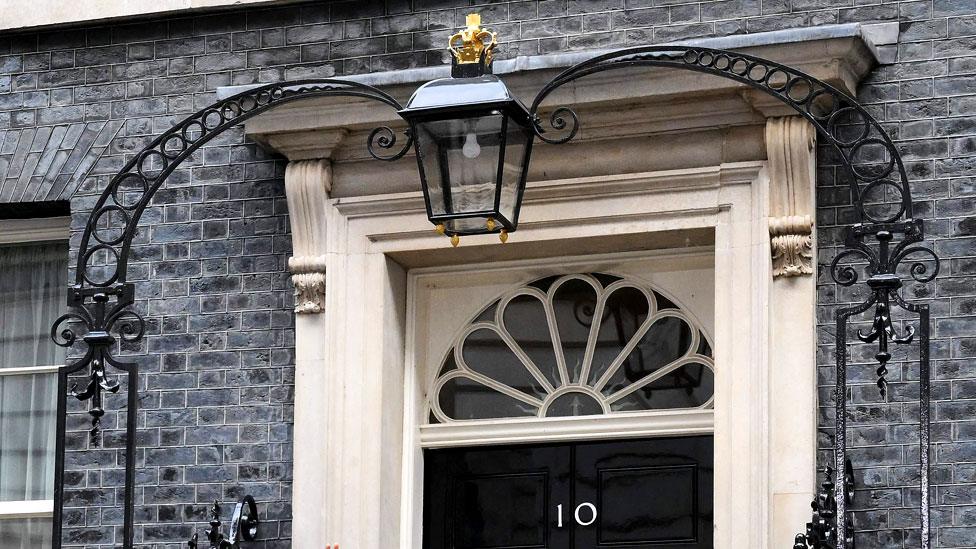What's happening in Parliament next week?
- Published
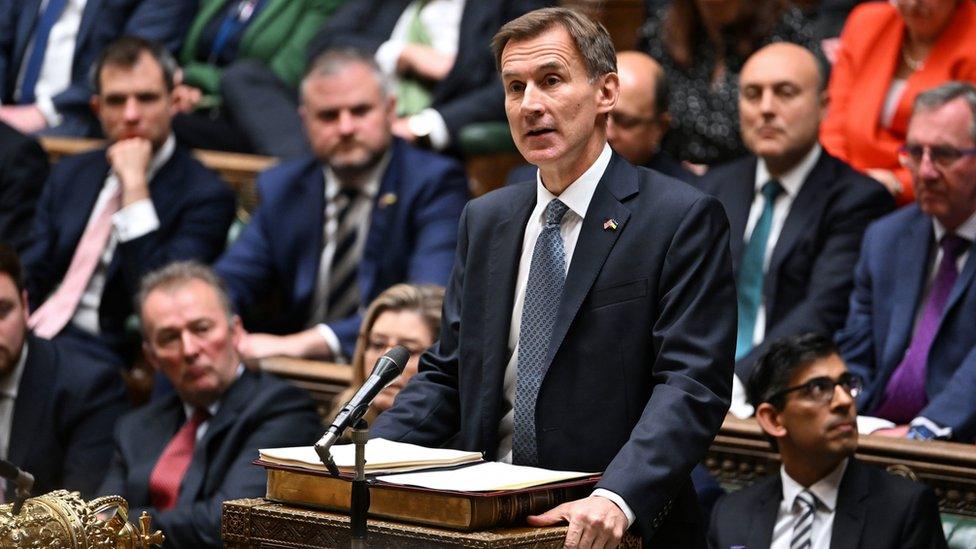
MPs will pick through the detail of the Autumn Statement this week
The week will be dominated by scrutiny of the Chancellor's Autumn Statement.
Keep an eye out for discomfort on the Conservative benches. A few jaws were visibly clenched when the statement was delivered, and in particular watch out for irate ex-ministers.
Former environment secretary George Eustice has already announced that, being out of office, he no longer has to put "a positive gloss" on the trade treaty with Australia and New Zealand.
Another former cabinet minister, Esther McVeigh has called for the cancellation of HS2. Other grandees may prove to be equally disobliging.
In the Chamber there will be two days of debate, culminating in votes on the various tax changes proposed.
The Treasury Committee has three sessions with experts and academics (Monday 15:15 GMT), the Office for Budget Responsibility (Tuesday 14:15), and with the Chancellor himself (Wednesday 15:00).
A couple of non-chamber events to keep an eye on:
On Wednesday, the Supreme Court is due to give its verdict on the case brought by the Scottish Government against the UK Government, to discover if they can hold a new independence referendum. Whatever their ruling, expect aftershocks in the Commons.
On Thursday the deadline expires for the Conservative Andrew Bridgen to appeal against the Standards Committee's ruling that he should be suspended from the Commons for five days over a failure to declare interests and an attack on the integrity of the Commissioner for Standards. No-one has yet triggered the new appeals process, involving a panel of three retired High Court judges, so might Mr Bridgen?
And with a December deadline looming, the government will also have to find time to rush through the bill to postpone the Northern Ireland Assembly elections.
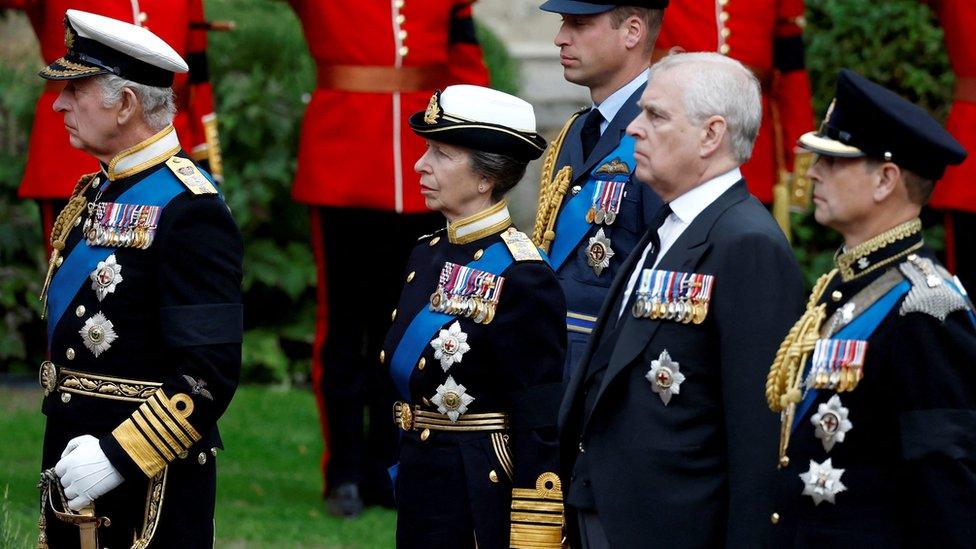
The House of Lords will debate measures to allow Princess Anne and Prince Edward to deputise for the King
Monday 21 November
Commons: at 14:30 it is Levelling Up questions - doubtless followed by the usual Monday quota of government statements and Urgent Questions.
The main debate is day one on the Autumn Statement.
Committees: The Levelling Up, Housing and Communities Committee questions returning secretary of state Michael Gove at 16:15. It will ask about the huge funding pressures on local councils, as well as progress on levelling-up, building safety, and reform of social housing.
At 16:00 the Public Accounts Committee looks at how the government seeks to protect vulnerable adolescents from harm. A big part of the issue is getting several government departments to work together - "like nailing jelly to a wall," says one committee source. There's evidence from a cross government panel of civil servants, headed by Susan Acland-Hood, the permanent secretary at Department for Education.
Lords: At 14:30 Peers will be asked to approve two sanctions orders against Russia. The measures target goods and services critical to Russia's economy.
Next is the Second Reading of the Counsellors of State Bill. Leader of the Lords, Lord True is piloting through the measure to allow Princess Anne and Prince Edward to deputise for the King, when required.
That is followed by the Second Reading of the Genetic Technology (Precision Breeding) Bill - which allows the use of gene-editing technology in the UK.
Tuesday 22 November
Commons: At 11:30 the day starts with Justice Questions.
Then there's a Ten Minute Rule Bill. Conservative MP, Selaine Saxby, wants to ban disposable barbeques on open moorland, beaches and areas of outstanding natural beauty.
The main debate is day two of speeches on the Autumn Statement. This culminates in votes on resolutions for the tax changes arising from it. These cover the Energy Profits Levy, the freezing of the basic rate tax allowance and the reduction of the threshold for the 45p band.
Westminster Hall: Debate on Canals and Waterways led by Conservative Michael Fabricant start at 09:30. He is concerned about funding for their upkeep.
At 14:30 there's a debate on NHS staffing led by Labour's Margaret Greenwood. Then a debate on domestic abuse and public life led by Labour's Apsana Begum at 16:00.
Committees: The Justice Committee meets at 14:00 to hear from Justice Secretary Dominic Raab on the case backlog in the court system. They will also question him on forthcoming legislation including the Bill of Rights, and the promised Victims Bill.
Lords: From 14:30 it is day two of committee consideration of the Public Order Bill. This is the exploratory "shadow-boxing" phase of detailed debate. There are no votes expected - but there are an awful lot of amendments and an extra day may be needed.
Wednesday 23 November
Commons: At 11:30 the day begins with Welsh Questions, before turning to Prime Minister's Questions at 12:00.
Then a Ten Minute Rule Bill, from the SNP's Anne McLaughlin. She wants a grace period before people on pre-pay electricity meters lose their supply, if they run out of credit.
The main debate is the first of two Report Stage days on the Levelling Up and Regeneration Bill. A further day follows on Monday 28 November.
Westminster Hall: Conservative Mark Garnier leads a debate on nitrous oxide at 11:00. The drug, he says, is freely available and has long term health effects. He wants ministers to ensure existing laws against its sale are enforced.
Committees: the Home Affairs Committee meet at 09:45 to question the Home Secretary Suella Braverman on the asylum and immigration system, Channel crossings and the recently signed agreement with France.
At 15:00 the Health Committee looks at NHS cancer services including performance and the backlog. It will also ask questions on delays in publishing a new 10-year cancer plan.
The Northern Ireland Affairs Committee meets at 09.30 to look at paramilitary and organised crime groups' involvement in housing intimidation.
Lords: at 15:00 peers rattle through a couple of rapid legislative formalities. First is the detail of Conservative Lord Hayward's Ballot Secrecy Private Members' Bill. Then it is the detail of the Counsellors of State Bill.
The main event is the Second Reading of the Northern Ireland Troubles (Legacy and Reconciliation) Bill.
The Bill creates a "truth recovery" process for offences, including murder and torture, during the decades of the Troubles. Controversially, it grants immunity from prosecution to those who participate.
There's a regret motion from Labour Leader Baroness Smith, noting that the Bill is not supported by victims groups, or any of the Northern Ireland parties. There's speculation that this may be another bill that's consigned to the government's, increasingly crowded, legislative freezer.
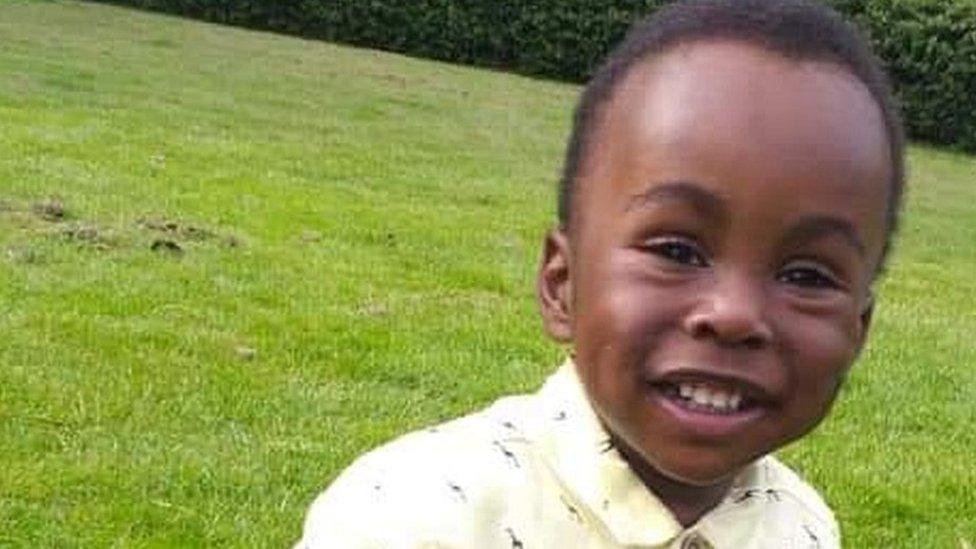
Two-year-old Awaab Ishak died in December 2020 after being exposed to mould in his home for his whole life
Thursday 24 November
Commons: at 09:30 it is Transport Questions.
The main debates are on two subjects chosen by the backbench business committee.
First, the UN International Day of Persons with Disabilities, and then the Independent Review of Children's Social Care. A key issue is that there are record numbers of children in care, whilst there is a £2 billion shortfall in funding.
There's an important adjournment debate, too - Rochdale MP Tony Lloyd on the death Awaab Ishak, and Rochdale Borouhgwide Housing. An inquest ruled that two-year-old Awaab died because of prolonged exposure to mould, while living in an Rochdale Borouhgwide Housing property.
Westminster Hall: there are debates on the Infected Blood Inquiry at 13:30 and social care in communities at 15:00.
Lords: at 11:00 two new peers take their seats. First former Northern Ireland First Minister Arlene Foster, as Baroness Foster of Aghadrumsee. Then former Conservative MP Graham Evans as Lord Evans of Rainow.
The main debates are on the COP27 climate change commitments and on human rights abuses in the Gulf States.
Friday 25 November
Commons: At 09:30 the day starts with Second Reading debates on private members bills - new laws proposed by individual MPs.
First is the Electricity and Gas Transmission (Compensation) Bill, from the Conservative Dr Liam Fox. It creates an independent compensation system for disruptions to people's property by the National Grid.
Next is the Hunting Trophies (Import Prohibition) Bill, from the Conservative, Henry Smith. This would ban the import of trophies from endangered species like cheetahs, hippopotamuses, lions and polar bears.
Further down the list are the Conservative Jerome Mayhew's Carbon Emissions (Buildings) Bill, and the Conservative Nickie Aiken's Fertility Treatment (Employment Rights) Bill.
The Lords are not sitting.
Related topics
- Published4 November 2022
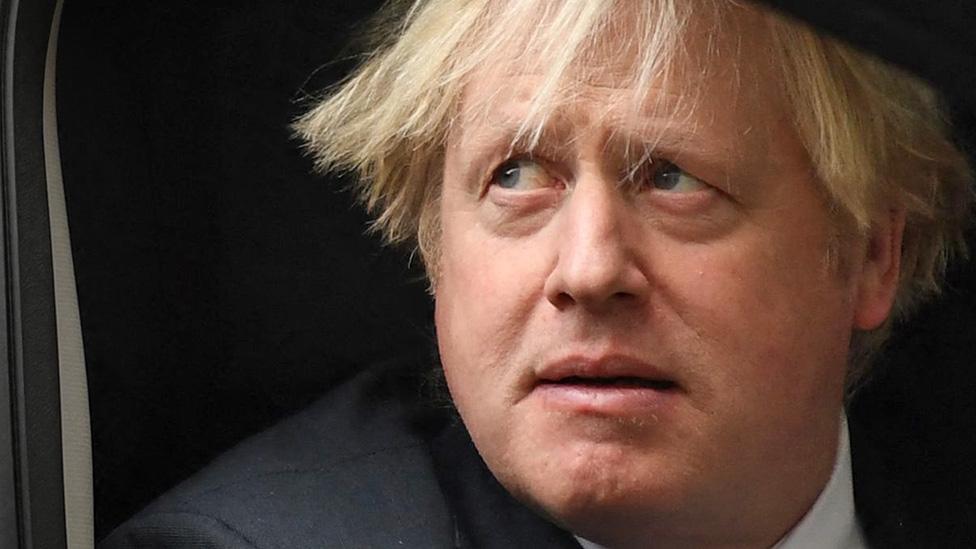
- Published4 November 2022
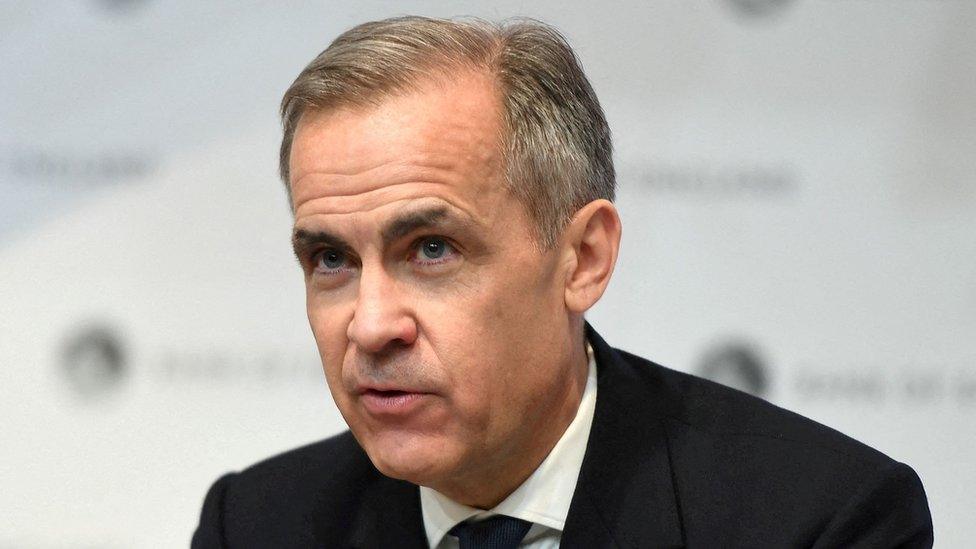
- Published2 November 2022
